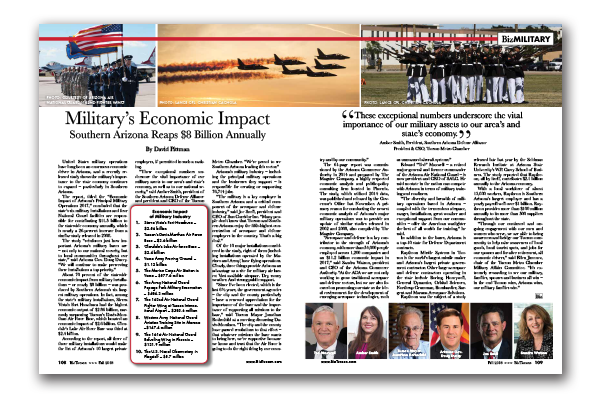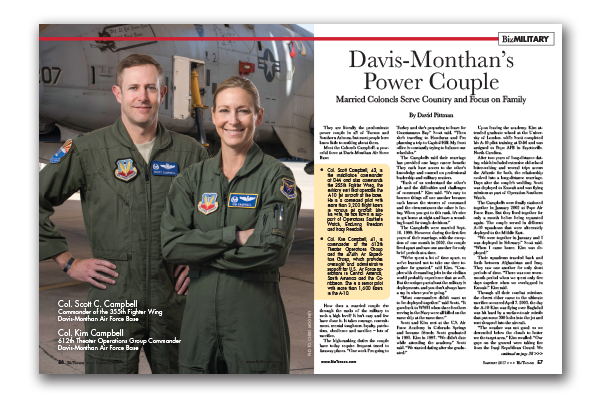
Spaceport Tucson for World View’s Near-Space Balloon Flights
By Eric Swedlund –
Tucson is poised to be a hub of commercial space flight now that Pima County approved a southside spaceport to service World View’s balloon manufacturing and launches.
The $14.5 million, 135,000-square-foot Spaceport Tucson will be built south of Tucson International Airport and include a plant for manufacturing the balloons that serve as World View’s launch vehicles. With a 4-1 Board of Supervisors vote, Pima County approved funding the facility and World View will make 20 years of lease payments totaling almost $24 million, with a purchase option after 10 years. The Spaceport will anchor the County Aerospace, Defense and Technology Business and Research Park
“We initially did a national search for a location and then we whittled it down to several states and several areas within each state – which essentially came down to Florida, New Mexico and Arizona,” said World View CEO Jane Poynter. “Arizona is where we’re from – but it’s also a great place to operate for a ballooning company. We were very happy that Arizona stepped forward with an attractive offer that’s a great win-win.”
World View will grow its operation from about 25 employees to more than 400, with the lion’s share of the jobs in manufacturing. Everything is reusable in World View’s launch vehicles except for the balloon itself.
“We’re already manufacturing balloons – but the new building will allow us to expand that dramatically,” Poynter said. “We also have operational personnel we’ll need, people to perform the launches. Every time we launch, we have a team of people go out to the pad to make sure the launch goes off flawlessly, and we also have personnel in mission control.”
World View anticipates launching its human spaceflight operations in 2017, at a cost of $75,000 per passenger, with capsules of two crew and six passengers floating peacefully to the edge of space for a two-hour flight, traveling inside a specially engineered and luxuriously appointed capsule transported by a parafoil and high-altitude balloon.
The company has made successful scale tests and next year plans a full mass, 10,000-pound test flight as the next step toward a manned launch, Poynter said.
In addition to the human spaceflights, World View has already been active in launching communications, surveillance and scientific equipment, which will remain a crucial component of the company’s business, Poynter said.
“For the next year or two, most of the flights are going to be on the robotic side,” Poynter said. “Think of it like a satellite, but closer to earth – at 20 miles instead of hundreds of miles. There is an enormous amount of science that can be done at that altitude. We can stay in a certain location or circumnavigate the globe and have the capability of staying up for months at a time.
“For example, we know the least about weather over the oceans, even though they have some of the largest effects on the weather over the land. We’re looking to collect better data that allows us to enhance our forecasting methodologies and accuracy.”
The balloons can also be deployed for emergency communications purposes. “Imagine if you could have your own little cell tower in the sky right over the area of a disaster – so everybody can communicate again and you can have eyes in the sky with specialty cameras,” Poynter said.
County officials see the Spaceport as a key to future economic development for the Sonoran Corridor, a 50-square-mile area surrounding the airport that includes many of Pima County’s largest employers, including Raytheon Missile Systems, Davis-Monthan Air Force Base, Tucson International Airport, Port of Tucson and University of Arizona Tech Park. According to a study from Phoenix-based Applied Economics, World View’s operation will have an estimated $3.5 billion impact on the local economy over the next 20 years.
“Jobs, jobs, jobs – that’s what this is all about,” said Board Chair Sharon Bronson in a county news release. “They’re why we’ve spent four years planning the Sonoran Corridor and they’re why we are continuing to develop it. It’s not just lines on a map. It’s real and it will transform our local economy and spur growth and prosperity for many, many years to come.”
Poynter said the Spaceport will be a public asset that can benefit the Tucson region beyond just serving as a base of operations for World View. A reputation for a robust space industry will continue to attract an increase in high-tech businesses.
“I’m very excited about having Spaceport Tucson here, not only for us selfishly at World View, but also for the community,” Poynter said. “It really sends a loud message to the aerospace community at large that Tucson is a center for commercial space business. That’s a very exciting industry to be in and it really helps our community to have this diversification of revenue for our region.”





